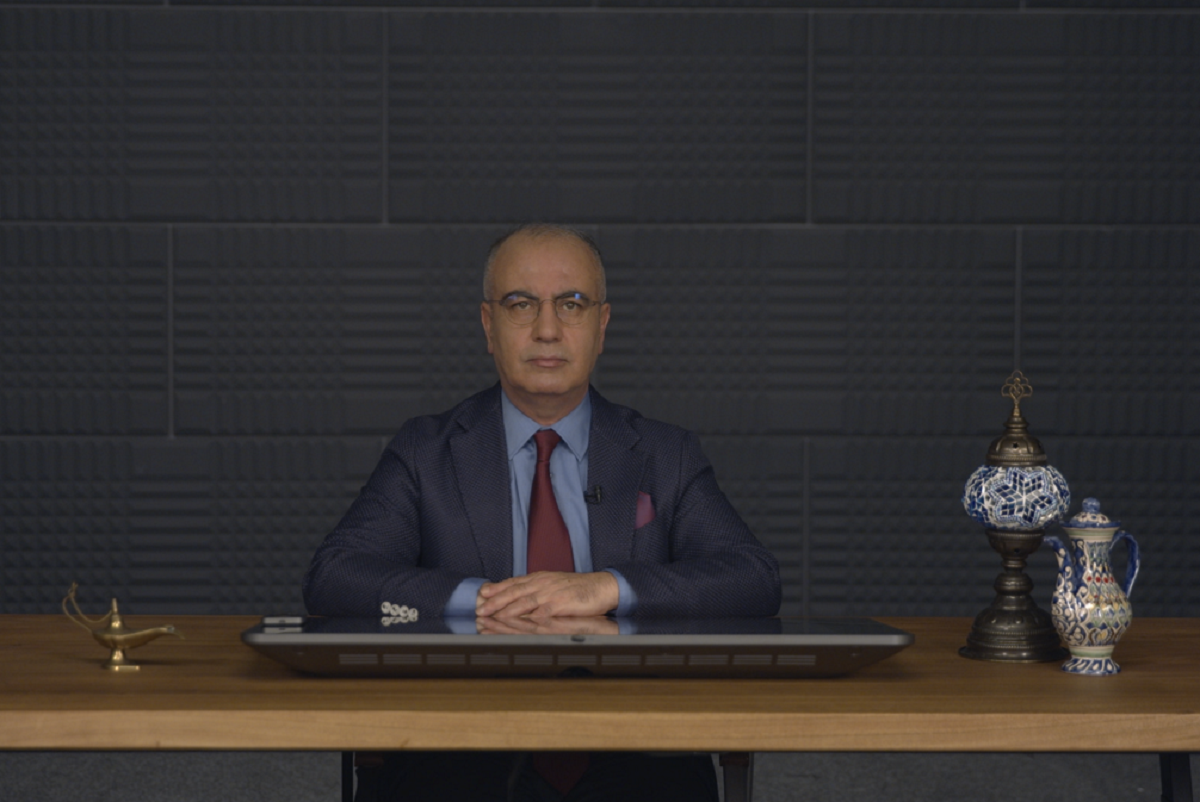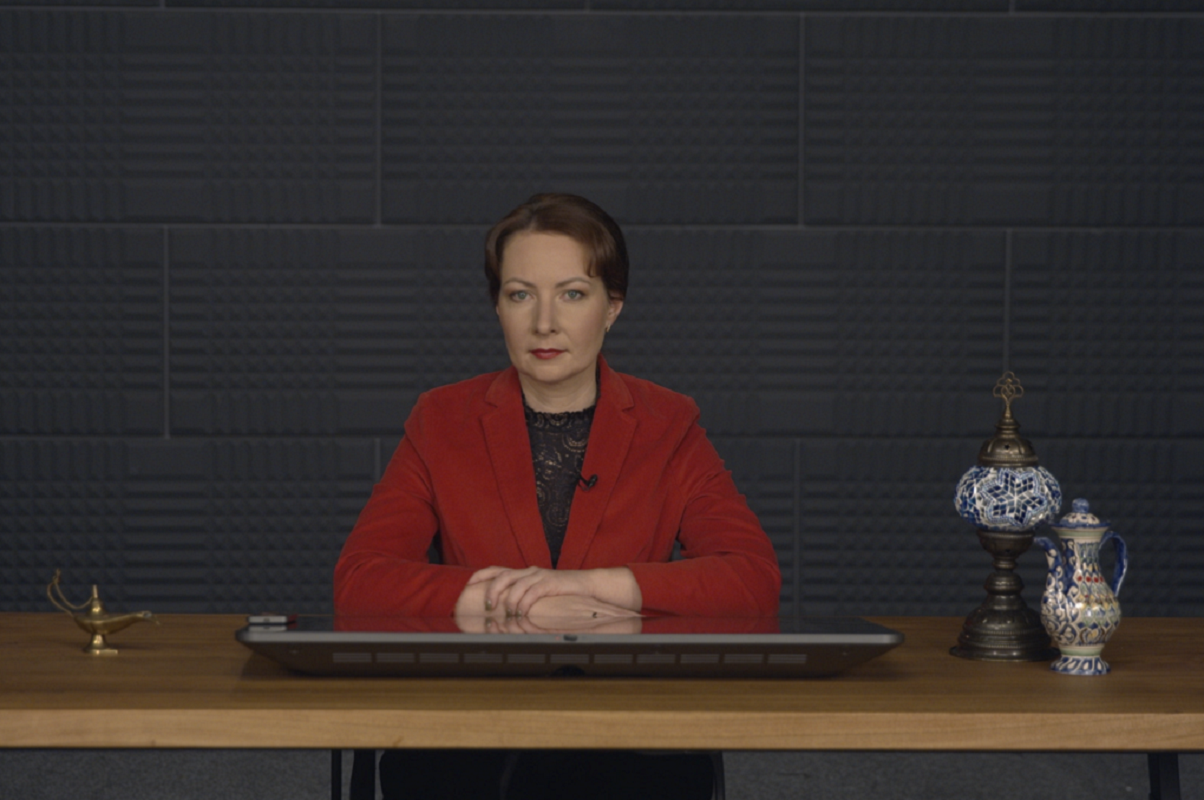Interview with Apollinariia Avrutina and Fehmi Yilmaz who are authors of a new online course about the Ottoman Empire by St Petersburg University and Marmara University
The Open Education platform offers the online course "The Magnificent Century: History and Culture of the Ottoman Empire". It is a new online course developed by St Petersburg University and Marmara University (İstanbul, Turkey), which is an international partner of St Petersburg University.
The authors of the course are Apollinariia Avrutina, Doctor of Philology, Associate Professor in the Department of Theory and Methodology of Teaching Languages and Cultures of Asian and African Countries at St Petersburg University, Director of the Centre for Contemporary Turkish Studies and Russia — Turkey Relations at St Petersburg University, and Fehmi Yilmaz, Doctor of History, Professor at the Faculty of Humanities and Social Sciences at Marmara University. The course introduces history, culture and art of one of the most powerful and largest empires in human history, i.e. the Ottoman Empire.
In our interview, we talk about how the Turkic studies has been developing at St Petersburg, how the course was created, and how Turkish people use online learning in Turkey.
Mr Fehmi Yilmaz, could you please tell us a little bit more about yourself and what connects you with St Petersburg and St Petersburg University?

I am a historian, Doctor of History and Professor at Marmara University in İstanbul. St Petersburg, with its libraries, archives, and the University, is a wonderful place I really love to visit and work at. We can say that our whole family is a bit of St Petersburgers. My wife is one of the first Turkish women to defend her dissertation in Russia. From 2001 to 2004, I lived and worked in St Petersburg, taught at the Department of Turkic Philology at St Petersburg University, studied history, and studied archives. Simultaneously, I worked at the Russian National Library, researching manuscripts. I am still doing this, that’s why I often come to St Petersburg.
The development of science, in particular Turkic studies, began thanks to Peter the Great. What I mean is not only the study of language, but the study of the Turkic world in the broadest sense. This includes sociology, history, economics, and other disciplines.
In Turkey, Peter the Great is generally referred to as Deli, i.e. literally "mad", but in this particular case this word means ‘genius’. In other words, Peter the Genius.
All St Petersburg scientific centres, libraries, archives, and institutes related to Turkic studies are therefore of great importance on a global scale. The most significant of these centres is the Department of Turkic Philology at St Petersburg University. Since the beginning of the 19th century, it has been home to some of the most famous specialists, one might say, stars of science. The Department is therefore the foundation for the study of the Turkic world, and St Petersburg is one of the sacred places for scholars of Turkology.
I have known some of these experts personally. They have had a huge influence on me, on my work, on my way of thinking, on my research. For example, Viktor Guzev, Professor at St Petersburg University, who was the teacher of both my wife and Apollinariia Avrutina. These were the people who, day and night, intensely and eagerly interested in only about one thing, i.e. their scientific work; others were of little importance to them.
We met Apollinariia Avrutina 20 years ago, when my wife and I lived in St Petersburg. Both she and other employees at the Department of Turkic Philology became not just colleagues for my family, but also close friends. We are relatives, in some sense. We are still communicating very often.
How did you come up with the idea of the joint course about the Ottoman Empire?

Apollinariia Avrutina: The idea was rooted in the incredible popularity of the Turkish theme, Turkish art, Turkish literature. When we were recording the course "The Literary Treasury of the Middle East" and making its English version, we decided to dress me as Hürrem Sultan for filming the teaser trailer. Everyone was really enthusiastic about the Turkish theme, and we decided to develop it in a new way. We were thinking even about going to İstanbul and conducting part of the on-site filming there in order to capture what had been preserved there. Unfortunately, everything changed, but the idea about the course together with Turkish partners remained. After all, one of the tasks the Centre for Contemporary Turkish Studies and Russia — Turkey Relations is to develop joint educational projects.
Fehmi Yilmaz: Apollinariia Avrutina and I are constantly communicating, exchanging our thoughts and ideas. One day, I received a letter from her, where she wrote about this project, sent examples of what had already been filmed before, and offered to develop a new course together. I’m always very busy with my work, but I replied: "Could you send me more details, I’ll take a closer look", and eventually I agreed to take part in the project. Firstly, it is very up-to-date. Today, there is a very rapid exchange of information and most projects are being transformed into digital format. Secondly, I definitely could not refuse the idea proposed by my good old friend. After all, although we constantly keep in touch, I haven’t lived in Russia for a long time, and everyone is mostly concerned with their own problems and thoughts. This project "revitalised" the contacts between two Turkic families, i.e. İstanbul and St Petersburg.
We worked hard to write lectures on the history of the Ottoman Empire that would be easy to understand and hold your attention. As a result, we have a so-called wonderful series.
In other words, it is the course specifically for ordinary people who are enthusiastic about Turkey, not for specialists in the Turkic studies?
Apollinariia Avrutina: Absolutely. The course was primarily created for a wide audience, those who are enthusiastic about Turkey and the East. We tried to tell our students about the history, culture and art of the Ottoman Empire from the period before its founding to its collapse in a most accessible and exciting way.
There is a very important and interesting point. When preparing the course, I was responsible for the part related to culture and art, and Fehmi Yilmaz was responsible for the history. His lectures focused on what you can’t find in Russian textbooks. He tells fascinating details as seen by the Turks. In Russia, there are textbooks from the mid-20th century on Turkish history. These are the books that introduces some of the episodes in the history of the Ottoman Empire. Yet, there is no textbook that would cover the entire history of the Ottoman Empire.
Thanks to Fehmi Yilmaz, the course reveals many unique moments that have not been written about anywhere, materials that have not been published in our country and which were unknown to me, information that is perceived differently from a Turkish point of view and differs from ours, which is somewhat outdated historiography. In this regard, the course may also be interesting for professionals.
Mr Fehmi Yilmaz, could you please tell us more about online learning in Turkey?
Online learning in Turkey is quite well developed. Back in the early 1990s, I was studying for a master’s degree, where American teachers delivered lectures to us online. Then, the pandemic pushed this format to develop and convinced everyone who thought that teaching remotely was impossible, that online learning is effective. Many things remained in our lives after the pandemic. For example, meetings are still mainly held online or in a hybrid format. The lecturers in the Department that I head often travel abroad for work, internships and deliver classes remotely.
What I dream about is that Apollinariia Avrutina would deliver lectures for my students, and that my employees and students would learn Russian online from St Petersburg lecturers. Unfortunately, this has not yet been implemented due to various reasons. Yet we hope that in future everything will be possible.
Finally, could you please share your impressions of working on the online course at St Petersburg University?
During my 35 years of academic life, I have often visited television sets. I saw a studio equipped to world standards, and a team of incredible professionals: from make-up artists to cameramen. It impressed me greatly. What made an even greater impression was that everyone was in a good mood, everyone was smiling. When people are so passionate and enthusiastic about what they do, you definitely recharge from them. Everything went smoothly. We filmed everything with pleasure and very quickly.
Many thanks to the entire team of the Centre for E-learning Development for this project, which, I can say, reconnected me with St Petersburg and St Petersburg University!

